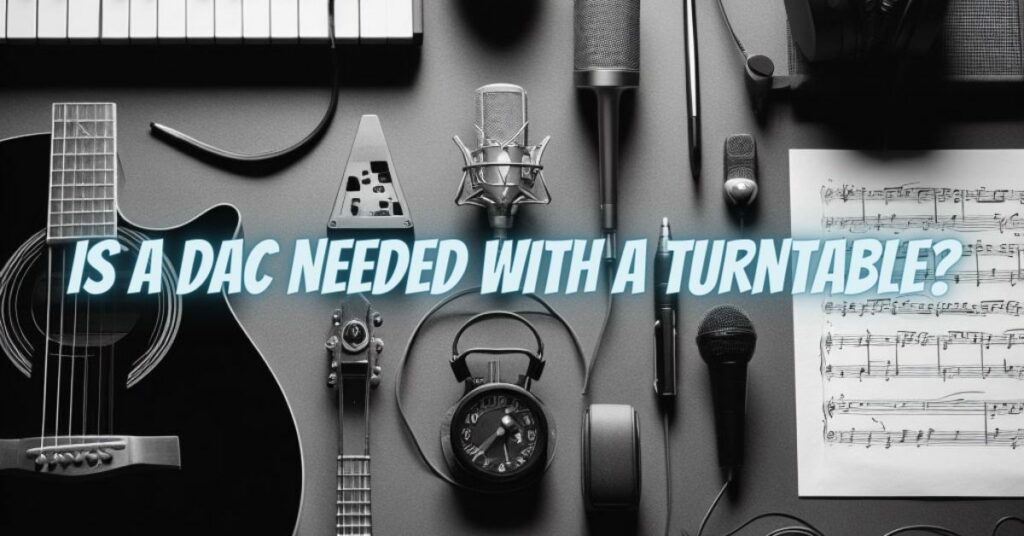The resurgence of vinyl records in recent years has rekindled interest in turntables and analog audio. However, in today’s digital age, audio enthusiasts may wonder if a Digital-to-Analog Converter (DAC) is necessary when using a turntable. This article delves into the relationship between DACs and turntables, explaining when and why a DAC might be employed in vinyl playback.
The Analog Nature of Turntables
Turntables are the primary source of analog audio in the modern era. They work by converting the physical grooves on vinyl records into an electrical signal, which is then amplified and sent to speakers to produce sound. Turntables produce analog audio directly, in contrast to digital sources like CD players, streaming services, or computer audio.
When a DAC May Not Be Necessary
In the traditional setup of a turntable, especially for those who appreciate the warm and authentic sound of vinyl records, a standalone DAC may not be necessary for several reasons:
- Analog Playback: Turntables produce analog audio output directly from the vinyl record. Since vinyl records are analog by nature, there is no need to convert the signal from digital to analog. This is different from digital sources like CDs or streaming services, which require DACs for conversion.
- Phono Preamplifiers: Most turntables are equipped with built-in phono preamplifiers, also known as phono stages. These preamps serve the purpose of boosting the low-level phono signal from the turntable to a standard line-level signal suitable for amplification by an amplifier or receiver.
- Vintage Audio Systems: Many vinyl enthusiasts prefer the vintage feel of analog audio systems. These systems may include classic receivers or amplifiers with built-in phono preamps, designed to work seamlessly with turntables without the need for additional DACs.
When a DAC May Be Useful
While turntables and vinyl records are inherently analog, there are scenarios where a DAC can be incorporated into a vinyl playback setup:
- Digitizing Vinyl: Some vinyl enthusiasts digitize their record collections to create digital backups or enjoy the convenience of digital playback. In such cases, a DAC may be used to convert the analog signal from the turntable to a digital format compatible with a computer.
- Hybrid Systems: Audiophiles who enjoy both analog and digital audio may create hybrid systems. In these setups, a DAC can be integrated to switch between turntable playback and digital sources, providing flexibility and convenience.
- Enhancing Sound: High-quality standalone DACs can offer sound-enhancing features, like equalization options, filter settings, and additional connectivity options. If you desire customization or additional sound processing, a DAC may be added to your turntable setup.
In most cases, a standalone DAC is not necessary when using a turntable for analog playback. Turntables generate analog audio directly from vinyl records, and built-in phono preamplifiers handle the necessary signal boosting. However, there are scenarios where a DAC can be integrated into a turntable setup, such as for digitizing vinyl or creating a hybrid audio system that incorporates both analog and digital sources. Ultimately, the decision to use a DAC with a turntable depends on your specific audio needs and preferences.


